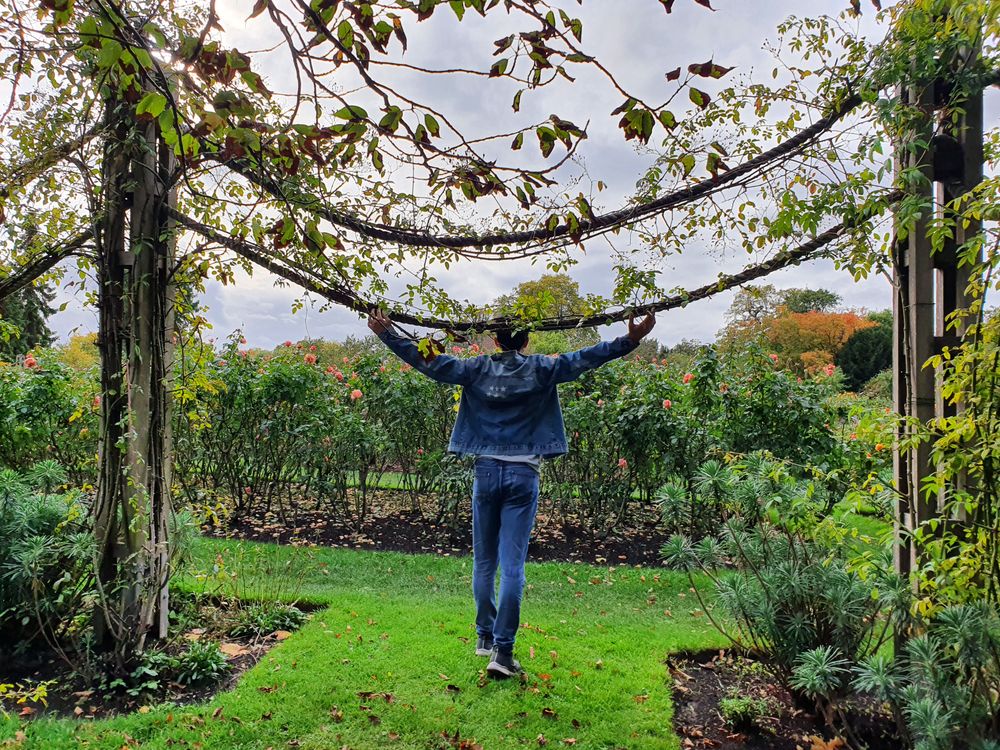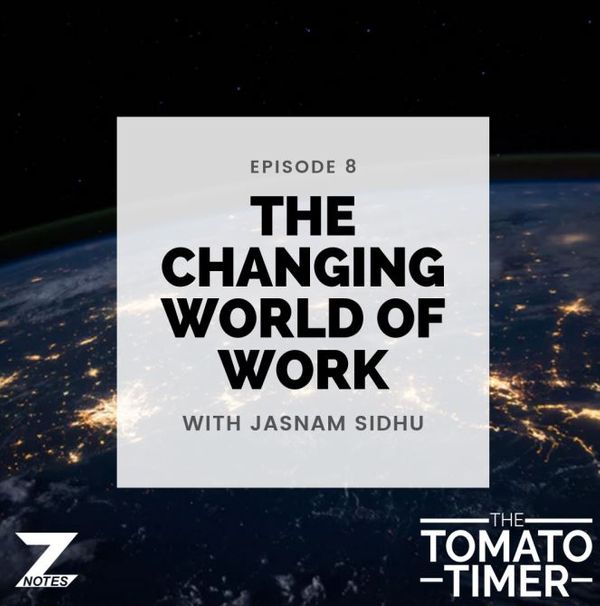Tracing 2022 in Books
As we enter into the eve of 2022, I am reminded to reflect back on a year of many big decisions. The most obvious way to trace a year is by thinking of it blow-by-blow, day by day. Yet, there are many underlying currents in one’s life that can serve as alternative perspectives to this, especially actions you take on a regular basis. For me, that could be my runs, the cities I’ve visited or, as the title alludes to, the books I’ve read. Why did I choose that book? How did I feel about it? Did the book reflect my emotional state or vice versa?
A vivid childhood memory is seeing my father’s bedside table stacked with books. He once told me that he could never go to sleep without reading, even if just a few pages. In awe of this habit, it became mine too from the moment I could read independently. And thinking back, I actually cannot remember a day in the past years or even decades when I haven’t read or re-read something before closing my eyes.
In the last few years, I have safeguarded this habit further - nothing but a book or a Kindle can enter my bedroom and by ensuring my alarm is set with some buffer time, I can make sure there is ample time for me to curl up with a book.
After quite a strong reading year in 2021 (and my reflection on those here), it has been tougher to maintain the same level of reading and reflective writing this year. A particular change has been taking ZNotes on full-time. Though you can make a lot of effort to carve out the time, creating a mental space conducive to time travel and exploration that a story draws you into is even more difficult. How do you stop the buzzing in your head with all the decisions you’ve taken in the day and remember all that you have in store for the next? I don’t have an answer but it is something I identify as a personal challenge - how to switch off properly.
This week, Goodreads reminded me that I still had 66 more books to go if I were to reach my overzealous target of 100 books read this year. I can give some excuses for not being able to achieve this but instead, I will metaphorically carry over those 34 books and tell you the ones which I loved the most!
The Endurance for Proust
A Goodreads review for Proust's Swann’s Ways says this is for "people who prefer writing over story". I am inclined to agree.
I have been in the vicinity of Proust for a while now and especially since Aciman's essays, keen to sink my teeth into them even though intimidated. The start was everything I was looking for - the incredibly beautiful and visceral description of the narrator's longing for his mother's goodnight kiss. The detail of the description and imagery at every moment.
But the novel in Part II which was Swann's story left me dissatisfied and then almost in literary pain to continue to read. The same longing and temporal nature in a childhood context were so disturbing and clawing when applied to Swann. The dramatic irony went from acceptable to annoying. This sounds quite negative... Let me clarify that the writing and literary craft remained at that incredible standard but that in itself made those feelings of jealousy in the protagonist so unbearable.
In the final part, which was quite short, we return back to the narrator and his innocent, childish infatuation with Swann's daughter. Once again, I enjoyed this part of the story very much. Overall, I am glad I read it because there was much to learn in the writing craft; the concept of involuntary memory is one I am keen to use in my writing. I'm probably not going to continue on with the next 6 volumes as regular reading but will come back to visceral descriptions of nature and time.
East & West Collide
And who does better to hear it from than Turkish authors, a country that has historically been considered that bridge? This year, I enjoyed two books by the Turkish-American author, Elif Shafak. The Forty Rules of Love captured the story of Maulana Rumi and Shams al-Din Tabrizi. As someone who has grown up with their poetry and story, it was fascinating to read it but also at times, a little difficult to swallow the inconsistencies and Westernisations of certain aspects. At first, these details grated on me but on reflection, I realised that making the story more accessible to a much wider and young population is tremendously helpful in describing the beauty of the arts in a part of the world that is so often overlooked.
The second of her books was a recent read, The Island of Missing Trees, and captured the history of Cyprus and Turkey through a star-crossed love story. In this, her writing did justice to not simply tell a story but also ensure it stayed true to a history sensitive to both cultures and viewpoints. A unique aspect of this story was that one part of the story was narrated by a fig tree. A non-human narrator is difficult to portray but the prose captured the sense of groundedness and longevity in those writings.
Fittingly, the other Turkish author is also called Elif: Elif Batuman. Her writing style is incredibly curious, roundabout confusing and anecdotal. It is less about telling a story and more about leaving an impression, a contrast to the previous two books mentioned. She also titles her books with past famous works. My last year’s read of The Idiot was, of course, referencing Dostoevsky’s book of the same name. This year it was the philosopher Kierkegaard’s Either/Or. I have not seen this practice ever before and yet, it is a really exciting way to bring themes and ideas from such seminal works to a new space and time. “Either, then, one is to live aesthetically or one is to live ethically.” As someone who struggles with the debate of an aesthetic versus ethical life, this book was one that I quite enjoyed!
Short Stories - a new space to explore
Thinking back now, I have always loved short stories but wasn’t consciously aware of them. Whether it was Enid Blyton’s magical stories or Doyle’s Holmesian cases, my childhood is filled with them. But this year, I was able to return to them and appreciate the beauty of this writing form. I did so across an eclectic mixture of anthologies.
The first of which was Borges’ Fictions - an anthology that truly stretched what a story can do and challenged all our fixed notions of what a novel should or can do: from untrustworthy narrators to strange subject matter and circular timelines. One of my favourites was the mindboggling The Lottery in Babylon which used such deep mathematical concepts of combinatorics I was left baffled! The levels of abstraction are simply astounding. For example, in one, Borges writes about an author who wants to write a book that already exists (outside the story too) but wishes to write it as though he had never read it. Not sure which ones but Borges breaks all the walls… 3rd, 4th, 5th ad infinitum.
In a recent book swap of this book with a friend, I was handed another Argentine author, Mariana Enríquez’s The Dangers of Smoking in Bed. Once again, a strange, eclectic collection of stories with even the cover of the book scaring me a little. The subject matter of some stories left me unsettled but it was authentic and true and human - and for that, I loved it!
After these two, I was convinced to read more translated short stories and when I found that The Great Budapest Hotel (a Wes Anderson movie I adore) was inspired by Zweig, I picked up The Collected Stories of Stefan Zweig. A fantastic and enquiring set of stories exploring often unspoken themes of death and ageing. The ones I loved the most were set in beautiful cities like Vienna and Bathampton. You can see why Wes and my auteurs are inspired by his writing!
The final that comes under this heading is Wilde’s Complete Works. A remarkable, witty author, I was left melancholic when I realised I had come to an end of all his collected works. We had studied his play, The Importance of Being Earnest, back at school and I had read his only novel, The Picture of Dorian Grey, a few years back too. Such a brilliant mind whom I longed to have written more.
Learning from the past

In chronological order, the oldest book I read this year was an Ancient Greek novel from the second-century AD called Daphnis and Chloe, the only know work of Longus. It was a heartbreaking, innocent, beautiful story.
Skipping quite some time, next up was Machiavelli’s The Prince written in the 16th Century. This is one of the books you feel obliged to read so felt a little uncertain when picking it up. What struck me most was how relevant this remains in the current political approaches in our society. I'm not sure if it made any great impression on me in the ideas communicated. But at the same time, the articulation of some ideas and possibly its prescriptive yet humble language intrigued me.
A century later, La Princesse de Clèves was published anonymously in 1678 but generally attributed to Madame de La Fayette, a French aristocrat. Often referred to as the first psychological novel and classic, I was blown away by how well it has aged hundreds of years later. I came across it because Aciman quoted from it in one of his essays and the writing style grabbed me. "violent passion" - that's how love is referred to throughout the book and I adore how visceral, and physical that description is. The story itself is so beautiful, heartbreaking but also agonising. Time is never right - a theme dominating in Proust’s work too.
Closer to modern times, my final classical read was Thackery's Vanity Fair - a novel that was published as a 19-volume monthly serial from 1847 to 1848 before being published as a single edition. An interesting, and long read. What struck me and I enjoyed was the prominent role of the narrator in not only telling the story but framing the metaphor of 'vanity fair' throughout the tale. The development of characters was incredibly nuanced and the length of the book was justified.
Across all those rather dated tales, I came to understand the age-old adage - history repeats itself. Sure, our day-to-day life is so different to what it was in 2nd Century Ancient Greece. But certain fundamental human desires and emotions, seeking a love or finding a purpose, remain the same.
Books that don’t fall into a category…
… because if they all did, what does it say about me?
The first was a book I discovered on Instagram in posts which quoted certain passages, Lispectors’s An Apprenticeship or The Book of Pleasures. The "or" in the title is unconventional and probably what drew me to pick up the book - inquisitive and edgy. I was reaffirmed on this reading endeavour by a friend recommending the author though he did say this was the least favourite of his Lispector. But it was the most accessible place to start reading her.
The book starts with a comma and stream of consciousness with not a single full stop for pages and pas. Incongruent and impossible threads to follow but also a 'throw you in the deep-end' approach to understand the character. I was slightly worried that this would be how the whole book would read but it gets more structured as you continue. The story itself is weird and I am not sure if I enjoyed it. There was an underlying current of misogyny throughout - maybe Lispector was accentuating it to contradict it? Also, the teacher/student roles made some aspects of the writing pretentious. But the personal growth of the protagonist and the philosophical maxims strewn in the mix were wonderful. An interesting read, I may have to pick up some of her short stories.
And probably one of my favourite books of the year and a recent read was Li’s The Book of Goose. Strange and meandering and eloquently written. It wasn't a sad book but it wasn't happy either and a sense of longing and melancholy was prevalent throughout. At the centre of it all, a beautiful friendship of two girls in rural France was the perfect backdrop to explore certain deep themes and questions.
Quotes of the Year
If you’ve stuck with me through this rather long jumble of reflections and realisations, then you are rewarded to now be left with some perfectly crafted phrases by some incredible authors.
Proust’s Swann’s Way
The places we have known do not belong solely to the world of space in which we situate them for our greater convenience. There were among only a thin slice among contiguous impressions which formed our life at the time; the memory of a certain image is but regret for a certain moment
Wilde’s The Young King
The burden of this world is too great for one man to bear, and the world's sorrow too heavy for one heart to suffer.
Shafak’s The Island of Missing Trees
Arboeral-time is cyclical, recurrent, perennial; the past and the future breathe within this moment, and this present does not necessarily flow in one direction; instead it draws circles within circles, like the rings you find when you cut us down. Arboreal-time is equivalent to story-time - and, like a story, a tree does not grow in perfectly straight lines, flawless curves or exact right angles, but bends and twists and bifurcates into fantastical shapes, throwing out branches of wonder and arcs of ingestion.
Shafak’s The Forty Rules of Love
Eternity does not mean infinite time, but simply timelessness.
Kuang’s Babel
Languages are only shifting sets of symbols - stable enough to make mutual discourse possible, but fluid enough to reflect changing dynamics.
Aciman’s Eight White Nights
Whereas I wanted to think of this as an encounter that had yet to gel, or hadn't quite happened yet and was still being fleshed out by some celestial artificer who wasn't getting his act together and hadn't let us improvise our lines until a better craftsman took the matter in hand and let us have a second go at things.
Kundera’s The Book of Laughter and Forgetting
The stupidity of people comes from having an answer for everything. The wisdom of the novel comes from having a question for everything.
Lispector’s An Apprenticeship or The Book of Pleasures.
Existing is so completely out of the ordinary that if we were aware of existing for more than a few seconds, we'd go mad




